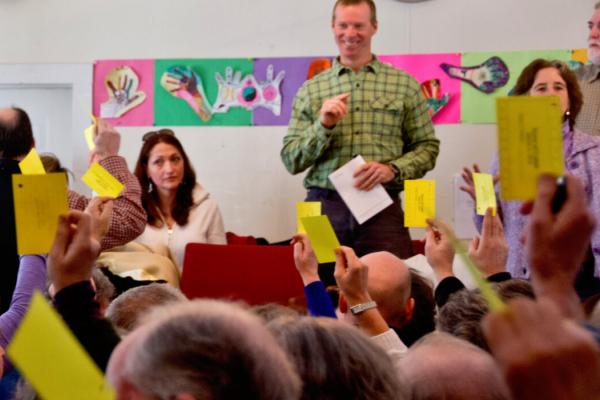IN A TIME of voter suppression, gerrymandering, and persistent political scandals, it’s easy to wonder if voting matters anymore. Many people don’t vote at all, citing everything from long lines to ethical squeamishness. But not voting is still a vote, with real consequences for our democracy. Here are a few ways to reframe the way we think about voting:
1. Make it more than a vote
Voting is just one aspect of civic participation. Extend the action by engaging in your community. Participate in events at recreation centers, run for school board, and attend public forums on local policy. Don’t make a ballot the only place you voice concerns—communicate with local officials and speak up at city council meetings. Think wisely about how you spend your money and your time, and make civic commitment an everyday mindset rather than an annual event.
2. Think globally
Thinking about one’s individual ballot, by itself, can make voting feel uncomfortably personal and easy to dismiss. Instead, consider how your vote impacts those outside the voting booth. Many people are unable to vote in some or all elections, including legal permanent residents, U.S. citizens living in U.S. territories, and, in many states, formerly incarcerated persons. Think critically about how proposed policies will impact these individuals. Be mindful of a candidate’s disposition toward the world. U.S. foreign policy is felt worldwide—vote with our global neighbors in mind.
3. Recognize that voting is an extension of your faith
While you won’t find a Bible verse commanding Christians to vote, we are called to care for marginalized communities that may be adversely affected by social policies. Sometimes we have strong affinity for a candidate, and other times we feel that one is the lesser of two evils. To vote is to recognize that community is messy and people who run for political office are rarely perfect. In the moment, voting doesn’t always seem worthwhile or meaningful, but it is an act of hope, an expression of trust in the power of collective agency to build a more just future.

Got something to say about what you're reading? We value your feedback!


